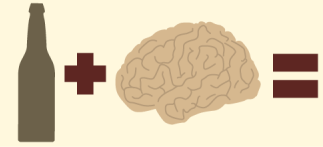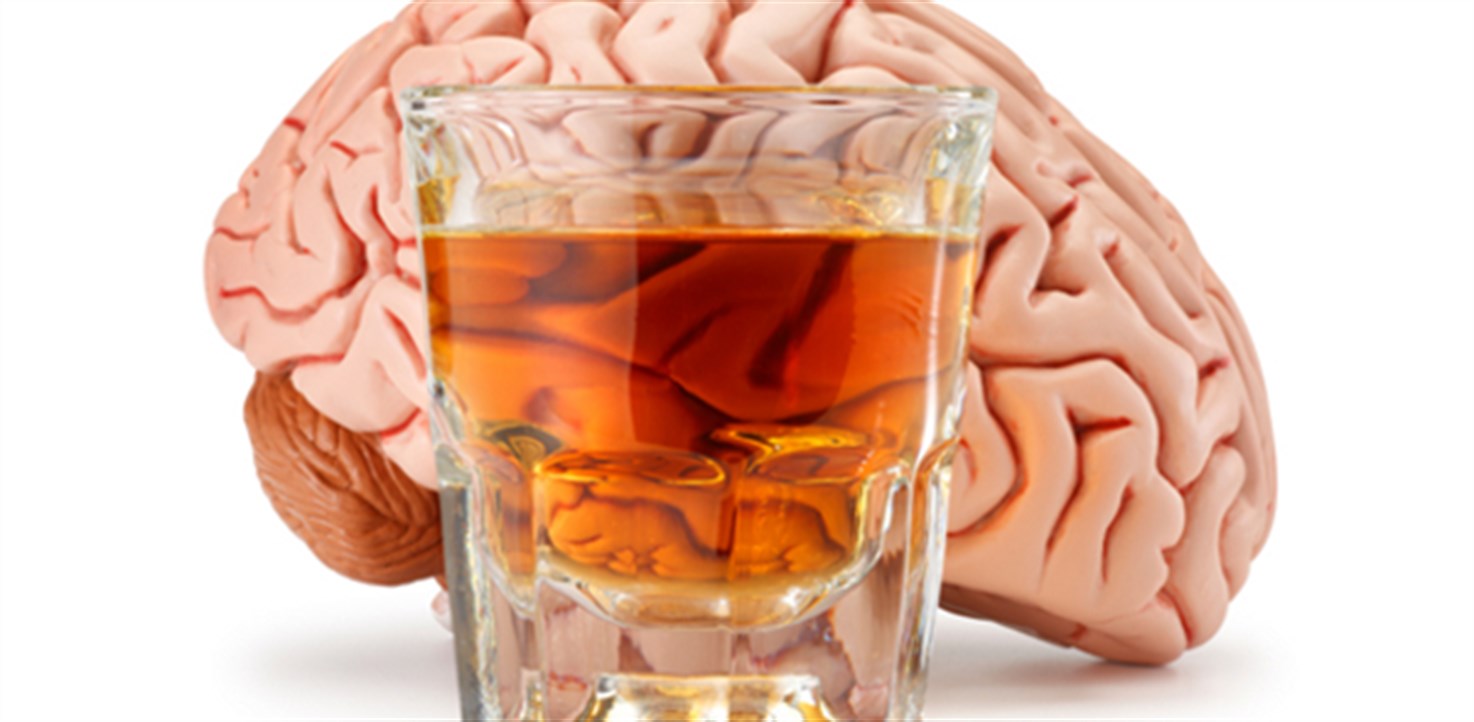
As evidenced by slurred speech, clumsy walking, and memory loss, alcohol can have dramatic effects on the brain, the extent of which depends on numerous factors. These factors include how much and how often a person drinks, general health status, and family history of alcohol behavior.
Alcohol directly affects brain chemistry by changing the balance of both excitatory and inhibitory neurotransmitters. For instance, alcohol inhibits the excitatory neurotransmitter glutamate, which speeds up the transmission of signals in the brain. Glutamate inhibition causes the brain to process stimuli slower, which in part explains effects like the slurred speech and blurry vision. On the other hand, alcohol increases the production of GABA, an inhibitory neurotransmitter. Like sedatives such as Xanax and Valium, alcohol causes the heart rate and respiratory system to slow down as an effect of increased GABA production. Another dangerous way alcohol alters brain chemistry is with the neurotransmitter dopamine in the brain’s “reward center.” Humans release dopamine naturally for any reason of pleasure, including catching up with an old friend or making a long-awaited purchase. Alcohol also increases the levels of dopamine in the reward center, thus making those drinking feel great.
Although developing brain disorders as a result of moderate alcohol consumption is rare, people who drink large amounts of alcohol over large time periods are at risk. These brain disorders result either directly from the alcohol’s damage to the brain or indirectly from poor health and/or liver disease.
For example, Wernicke’s encephalopathy occurs due to a deficiency in thiamine (also known as Vitamin B1), a common symptom of alcoholism. Symptoms of Wernicke’s encephalopathy include mental confusion, paralysis of the nerves that move the eyes, and muscle coordination dysfunction. About 80 to 90 percent of alcoholics with Wernicke’s encephalopathy develop another disorder called Korsakoff’s psychosis. Those with Korsakoff’s psychosis experience difficulty with walking and coordination and are forgetful. Those in the early stages of Wernicke’s or Korsakoff’s may benefit from thiamine supplements.
For more information: https://www.forbes.com/sites/daviddisalvo/2012/10/16/what-alcohol-really-does-to-your-brain/#c9034c413b0a and https://pubs.niaaa.nih.gov/publications/aa63/aa63.htm




